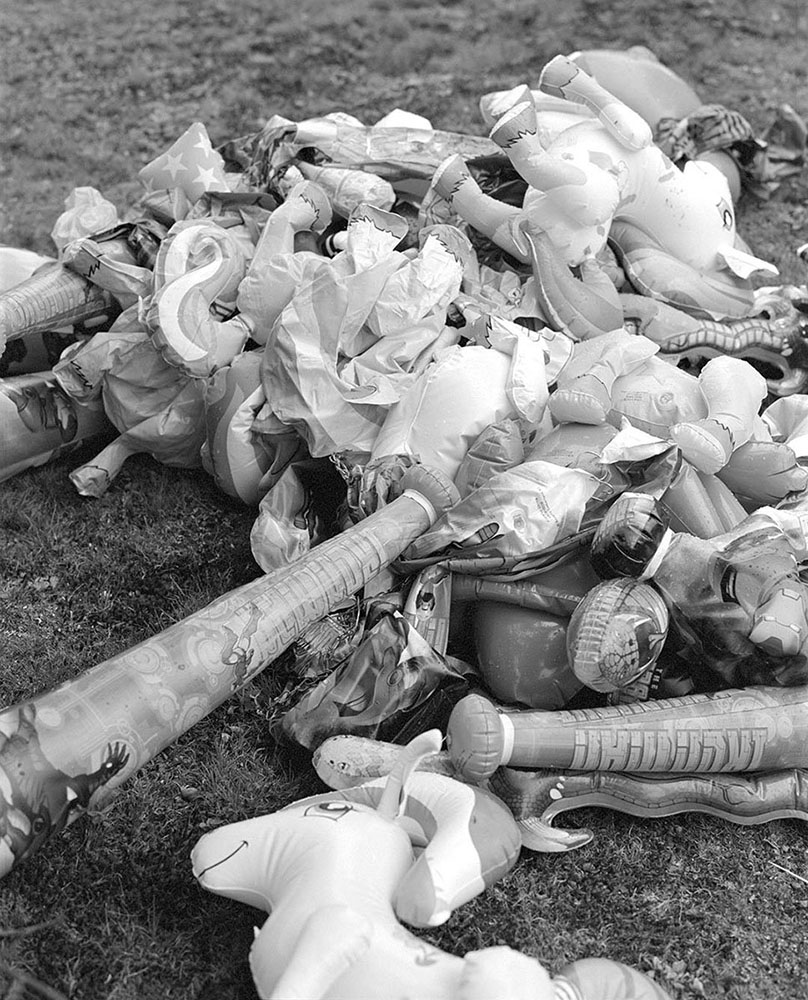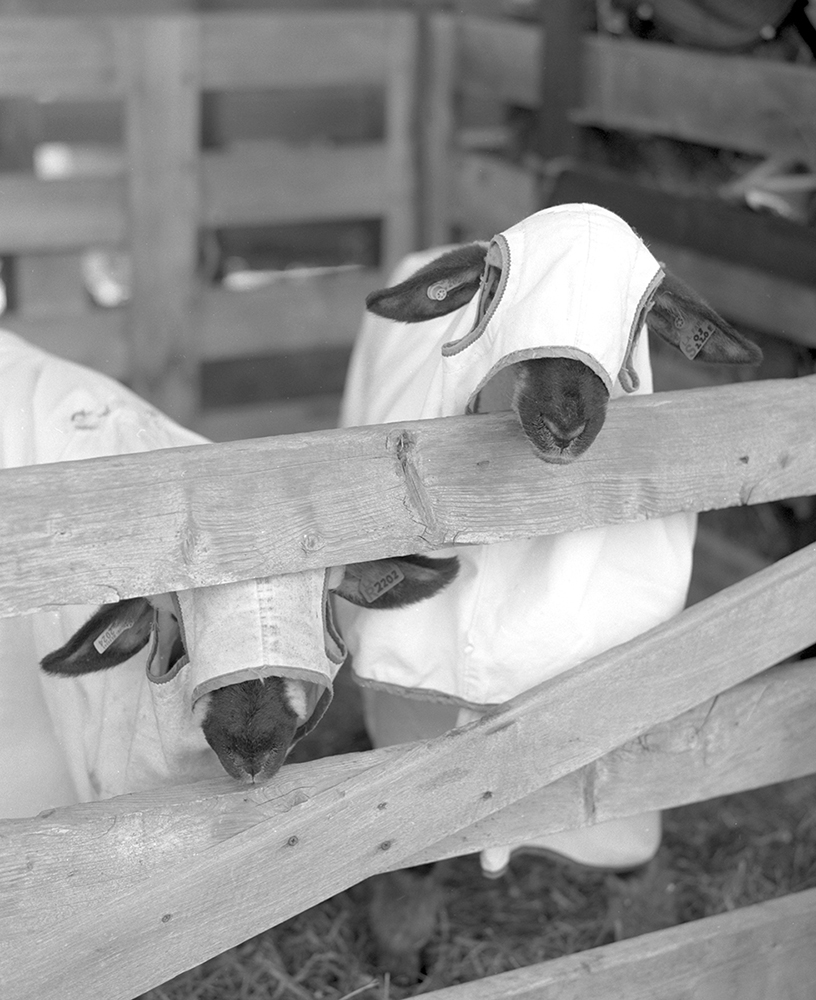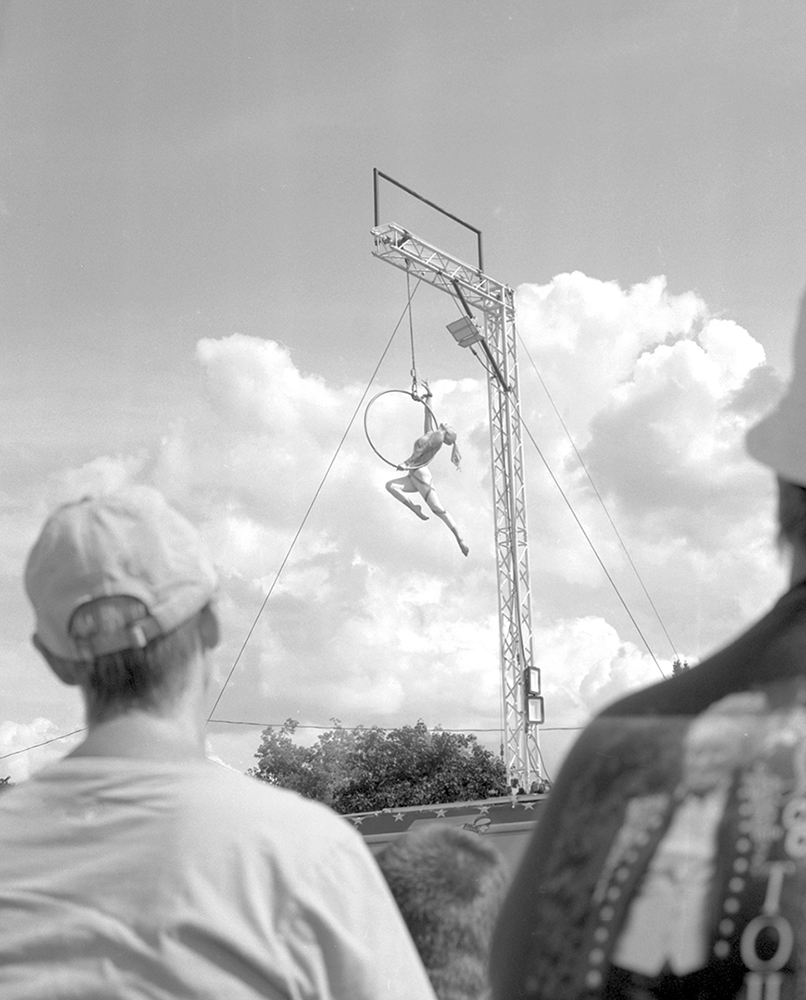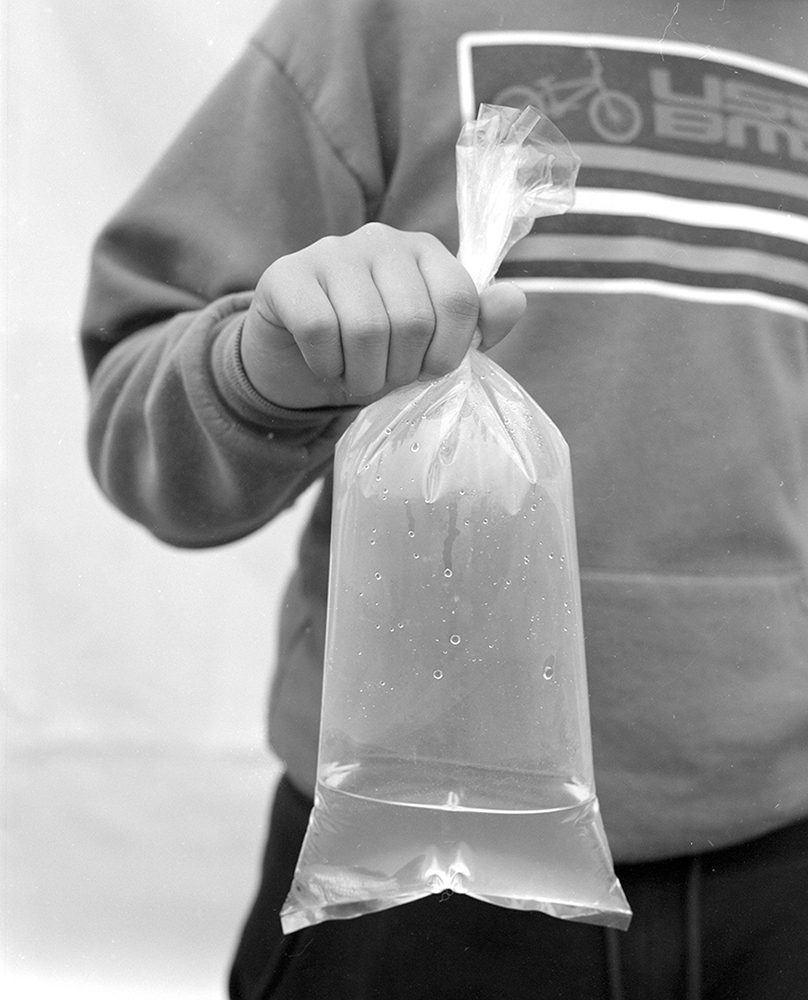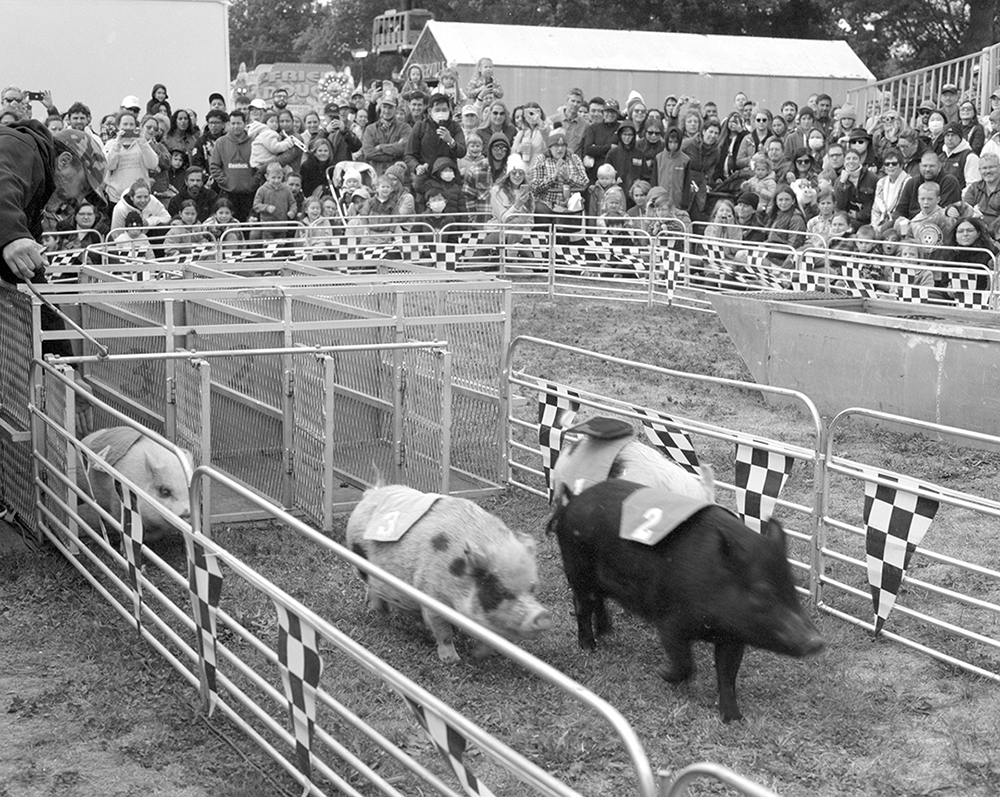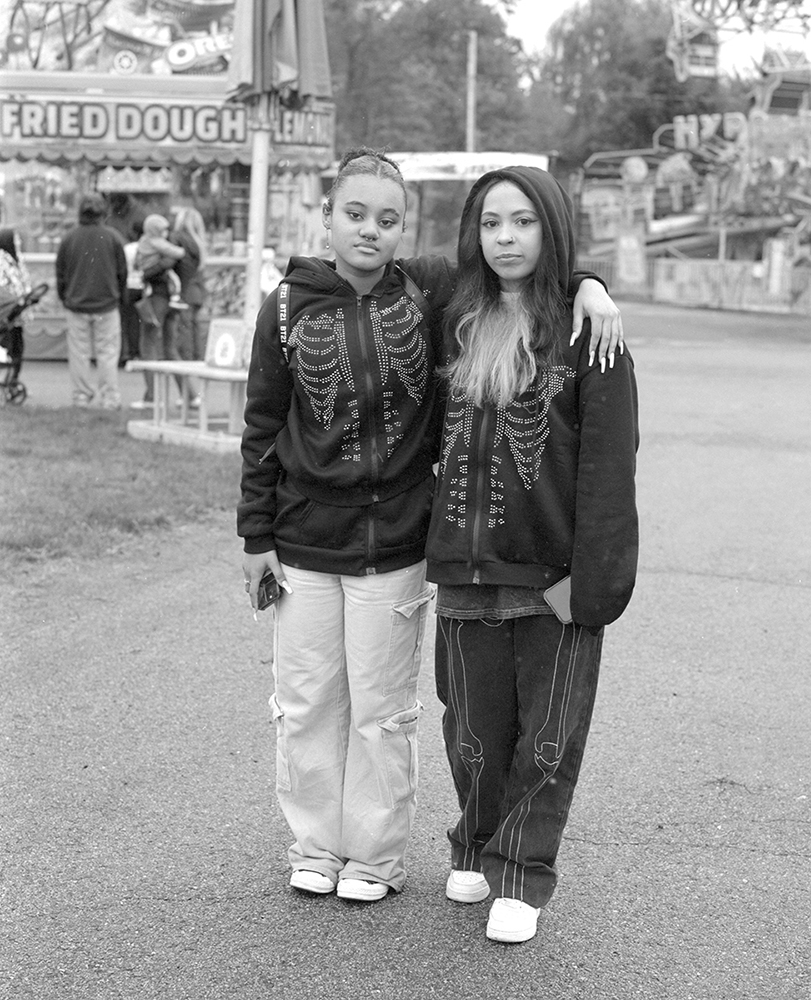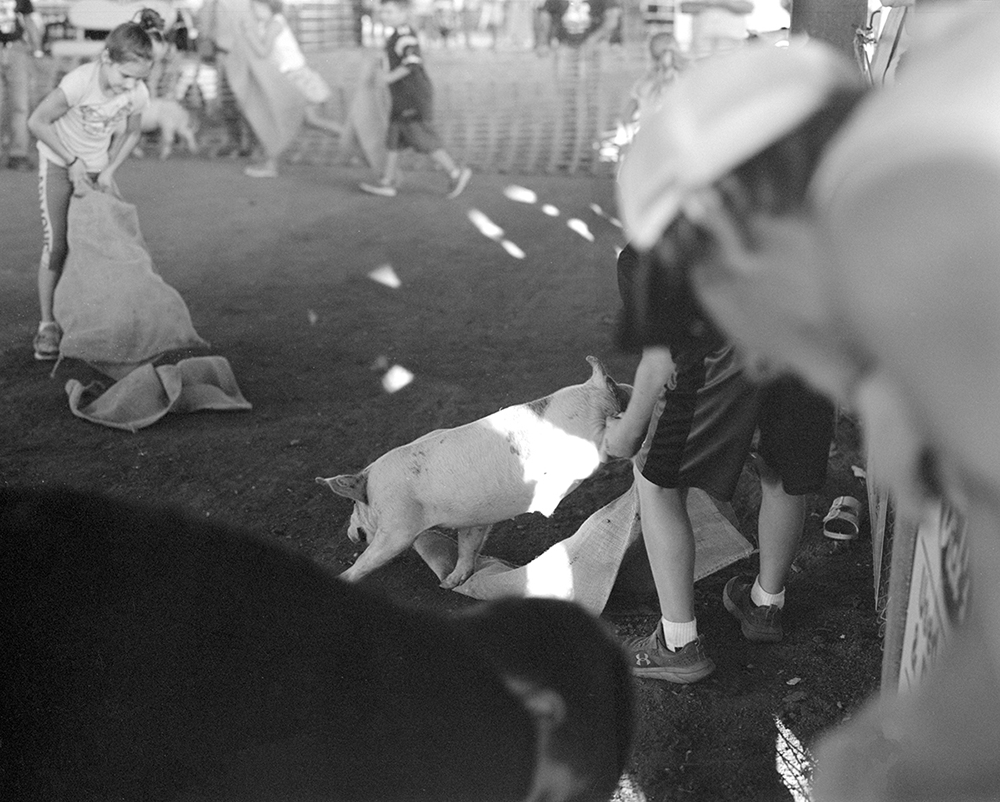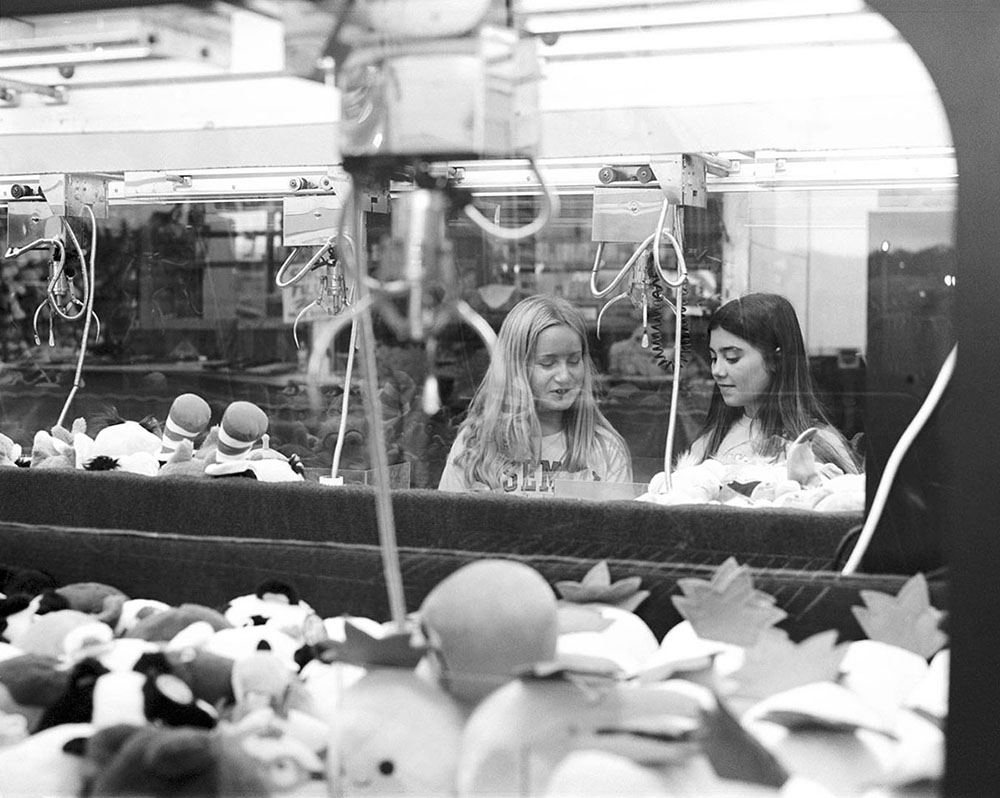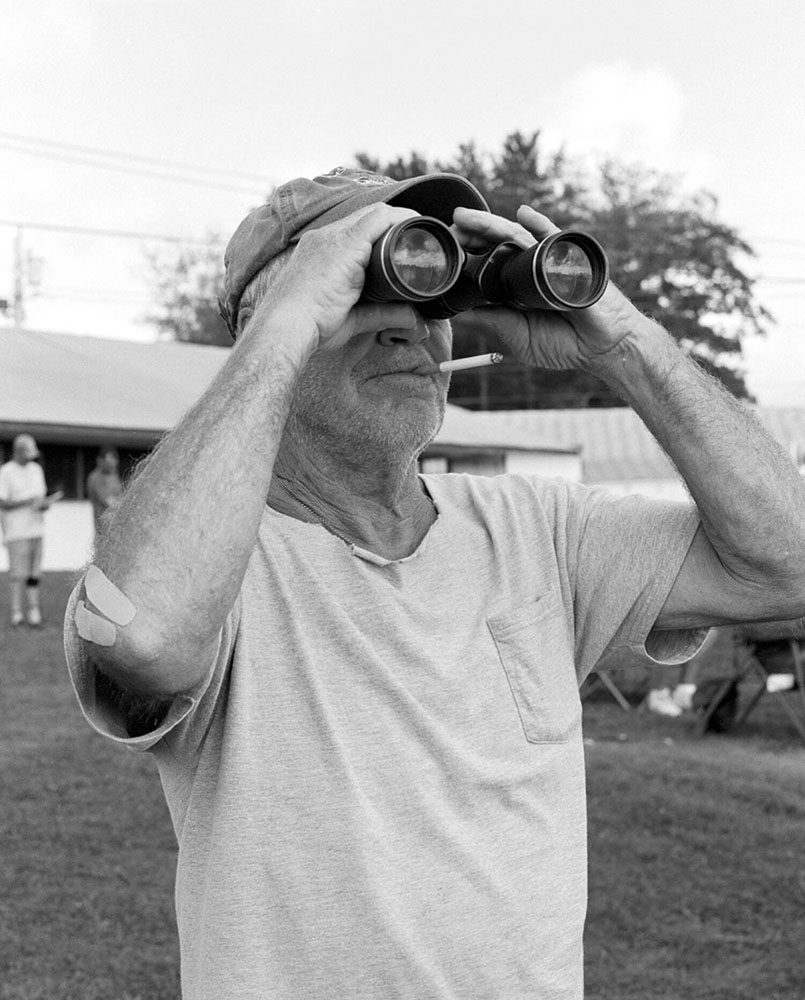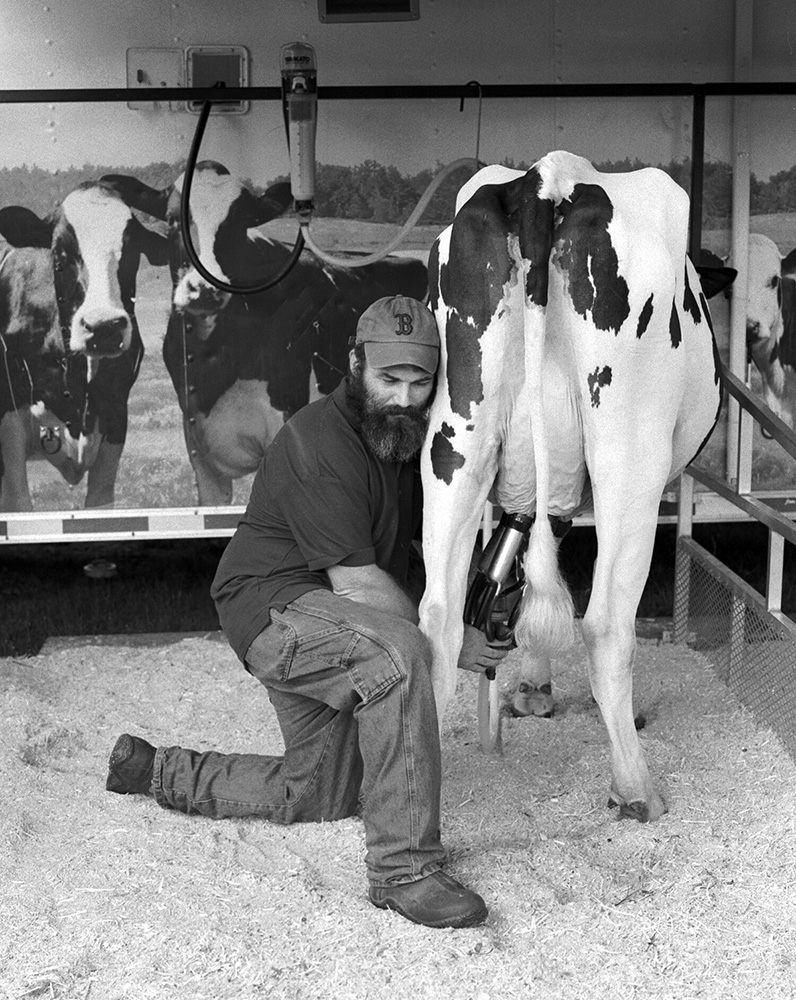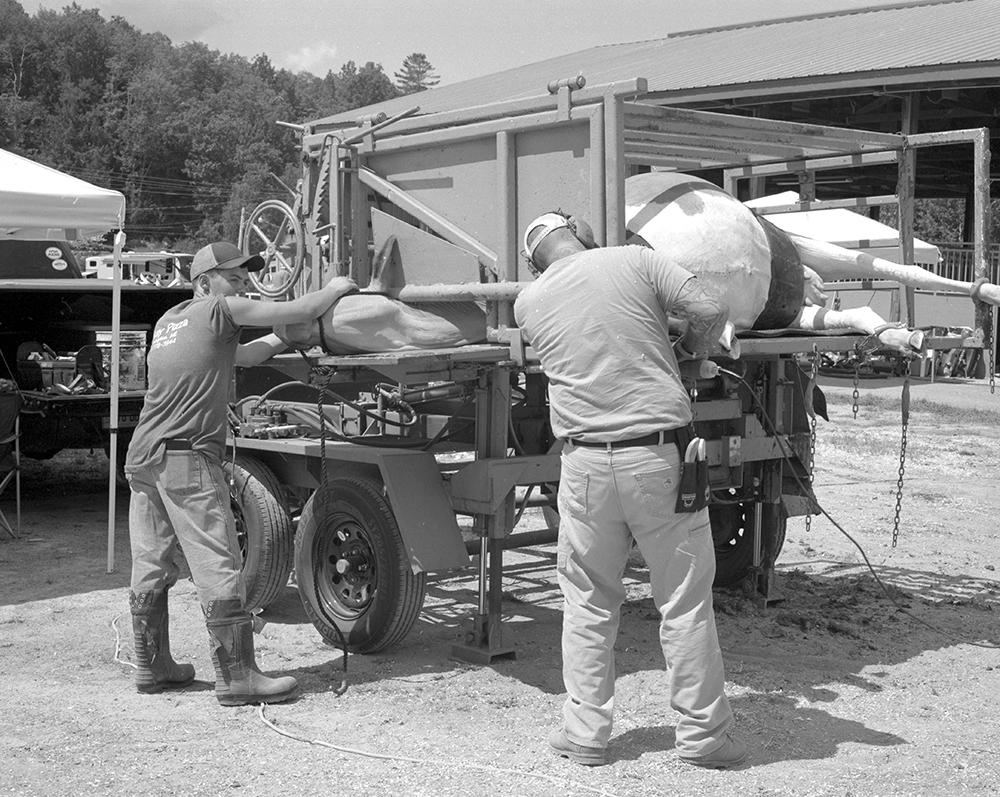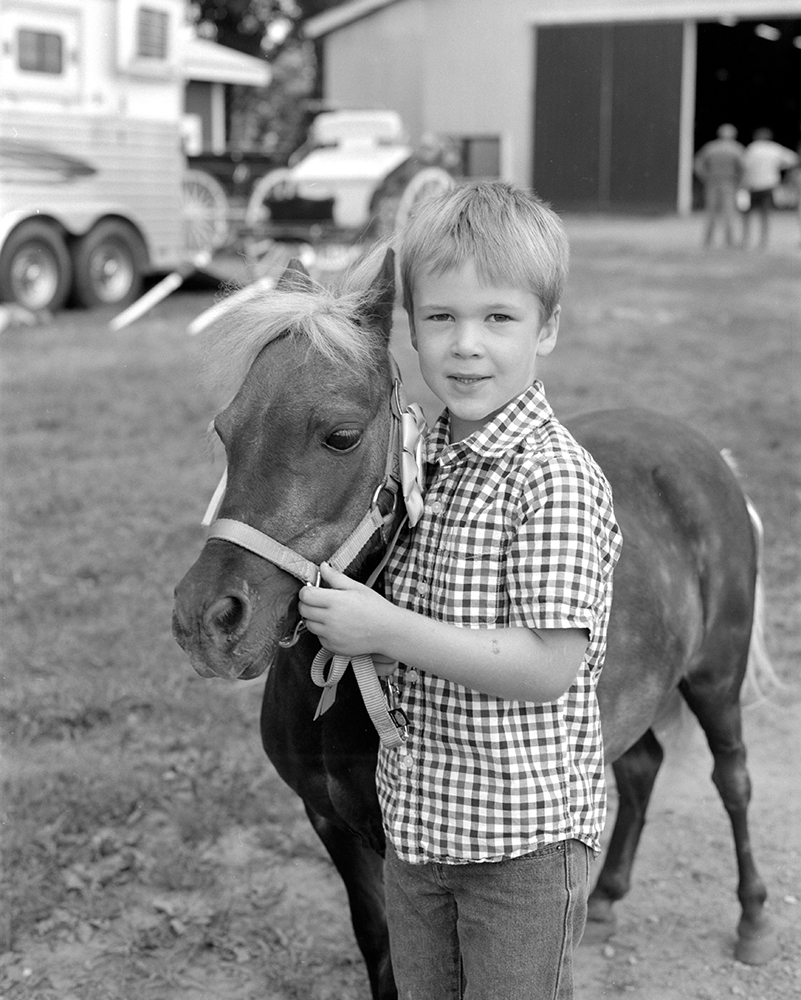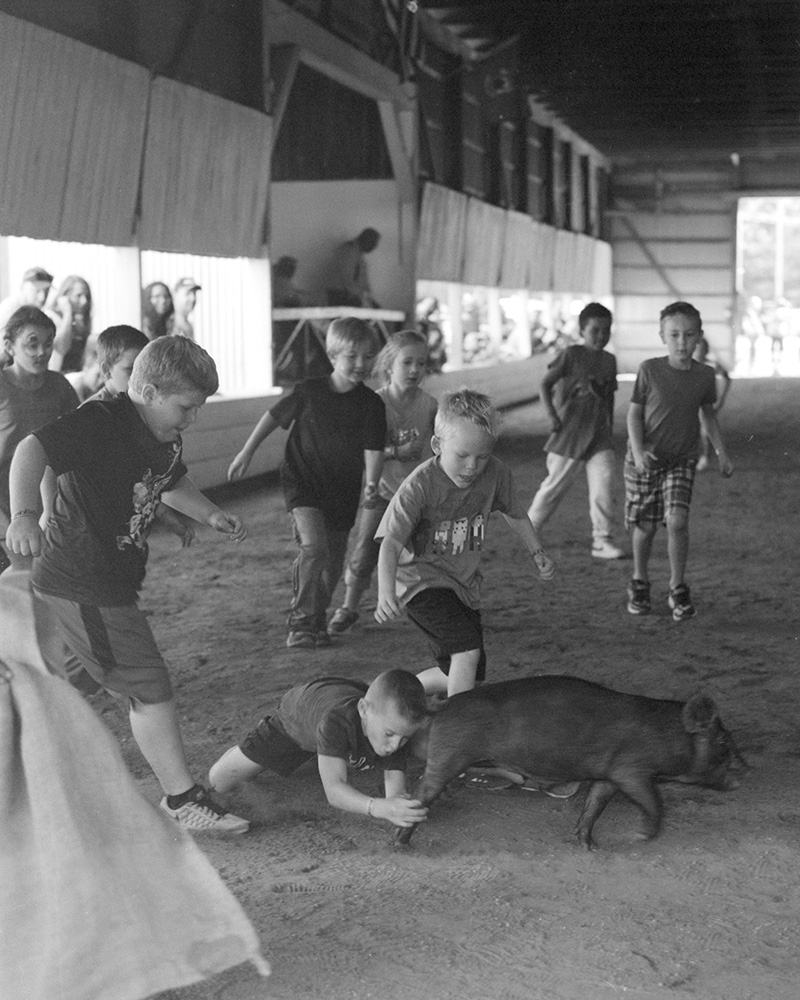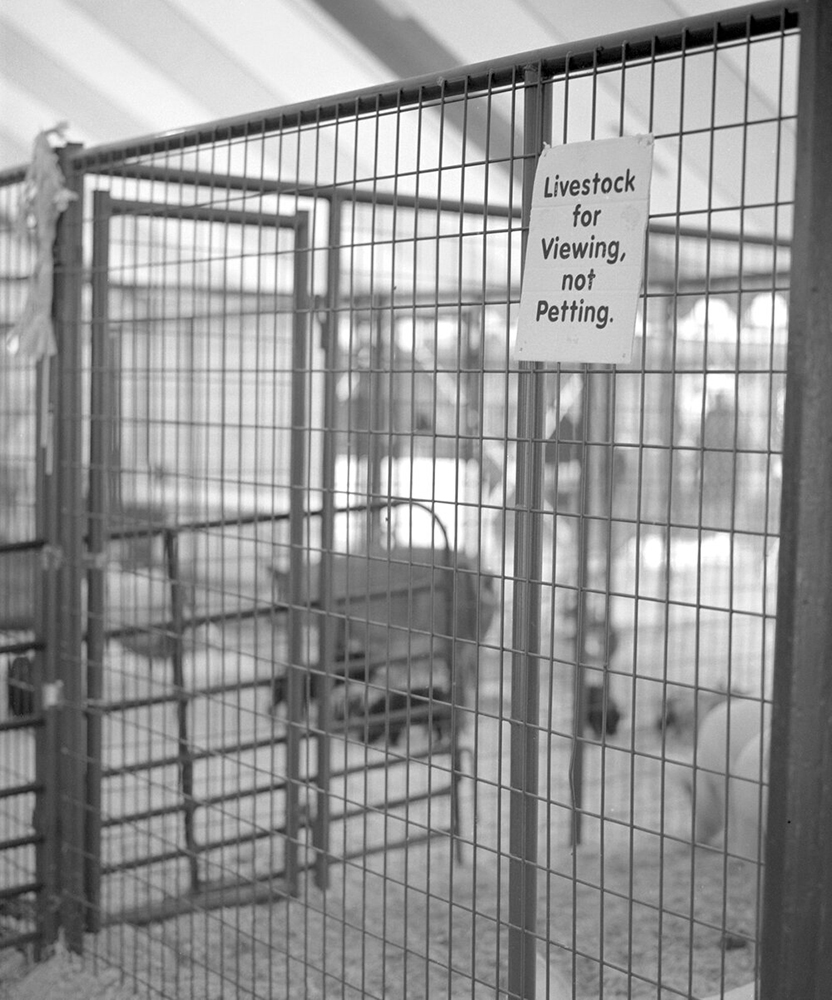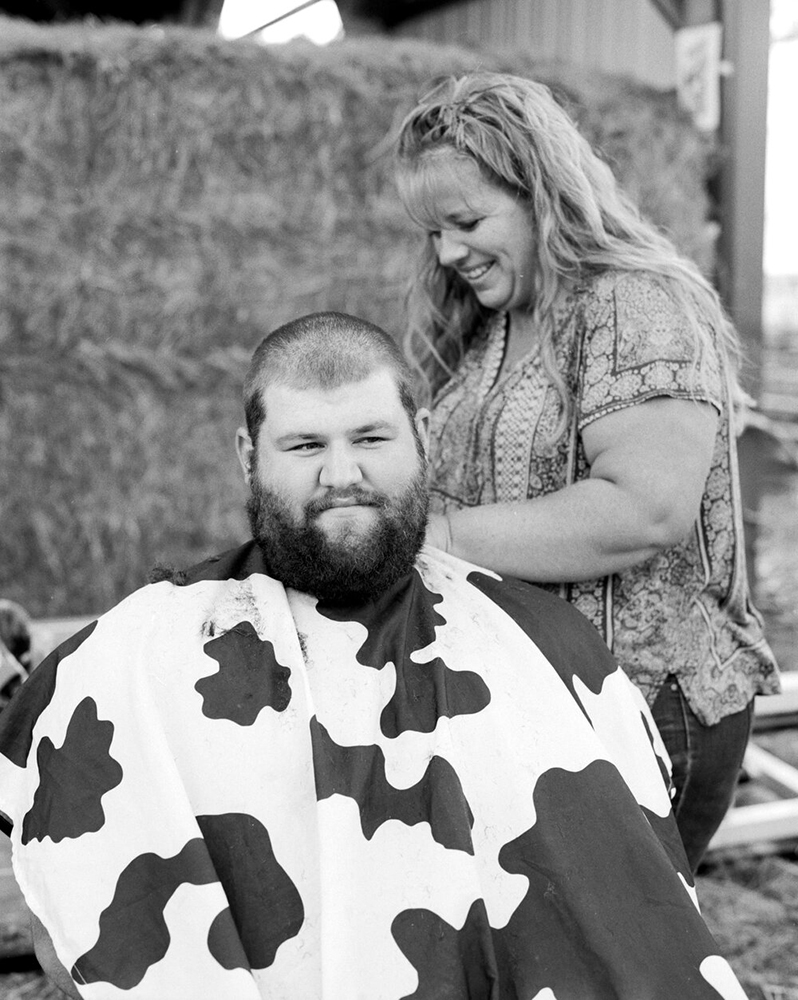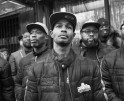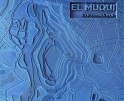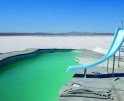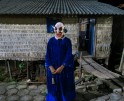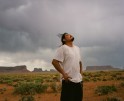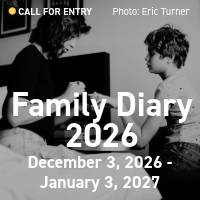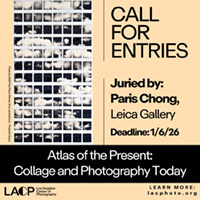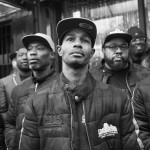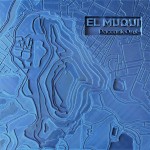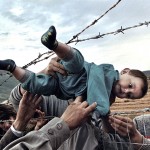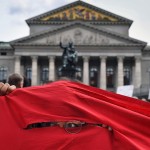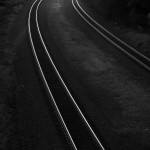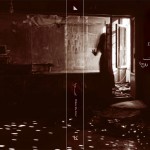Hannah Latham: Milking Hour
Epiphany Knedler: How did your project come about?
Hannah Latham: Growing up, I would always go to the Windsor Fair with my family every summer. My grandparents had a small cabin nearby in Maine where we would spend every 4th of July and Labor Day with my cousins. We’d all pile into the car, dreaming of fair food and the thrill of the rides. I can still taste the sweet maple soft serve and picture the way Grandma would lick the drippy cone with her tongue. It was like revisiting a childhood memory.
While we were there, Grandpa loved to watch the tractor pull, 4H animal shows, and even the demolition derby. One year my Mom and Aunt Tammy even participated in a frying pan throwing contest, taking home ribbons. However, I’ll never forget the year my name was drawn for the pig scramble.
It was the summer before 3rd grade, and I found myself in the spotlight of a dirt floor arena with a group of frantic piglets and other kids. On the count of three, mayhem ensued as my entire family cheered me on from the bleachers. The goal: to catch a pig and tie it in a burlap bag to take home or sell back to the farmer for $20. I wanted a pig so bad and Grandpa knew it. I watched one boy grab one by the back leg only to be covered in poop since the pig was so terrified. Eventually, I lunged and caught one, successfully leading its snout into the bag. The farmer came over and held the bag for me while I tied the string into a bow. I wasn’t allowed to keep the pig and Grandpa felt bad that he couldn’t fulfill my dream. I still have the $20 bill.
As I grew older, I started to notice things I hadn’t before when visiting the fair. I watched the pig scramble for the first time since I was a kid and couldn’t stop hearing the sounds of the pigs screaming in fear, unaware of their fate. It also seemed that as I changed, the culture around me stayed the same. I started eating plant-based in college and couldn’t help but notice the proximity of the farm animals to the trailers selling meat as it emanated into the air. Booths selling Trump merchandise were everywhere and it made me feel isolated in a place I once felt so at home.
After my grandparents passed, I found that visiting the fair was a bittersweet way to access them. I started this series as a way to intentionally return to shooting film, slow down my process, and interact with people I never would otherwise. I also wanted to play with the illusion of time in black and white.
EK: What relationship does memory or intimacy play within your practice, and does photography become a way to navigate these complex topics?
HL: Photography is absolutely a coping mechanism for me as it relates to memory and intimacy. The Alzheimer’s gene runs in my family (Bring Me A Dream) so there is this lingering fear of losing touch with my reality. I think about my Dad and if he will experience the same fate as my grandmother. In that series in particular, I was able to use my camera go gain a deeper sense of intimacy with my family – in a way I had never experienced prior. I went from barely saying “I love you” to family members to photographing them in extremely vulnerable moments that I will hold onto forever. My Dad is an archivist and lover of genealogy – having traced our family back to the Mayflower (and beyond). I have followed in his footsteps in my own way, documenting, archiving, and preserving the most precious of documents, photographs, and family heirlooms. I feel that when you experience great loss, the need to hold on and remember is that much more important.
EK: Is there a specific image that is your favorite or particularly meaningful to this series?
HL: The pig scramble event at the Windsor Fair is especially important to me. While I have several images documenting this event, the layered quality of the horizontal image is especially memorable for me. The shallow depth of field enhances the chaotic nature of what is happening as the farmer leans down to help a boy in the foreground. In the center, you can see the method in which most kids catch a pig and the true expression of terror on the pig’s face, mouth open in fear. In the back left corner, you can see the end result – a little girl dragging her burlap sack with a squealing pig inside. This moment is simultaneously nostalgic for me, having participated in the pig scramble as a kid, and disturbing considering how I feel about it now.
EK: Can you tell us about your artistic practice?
HL: After graduating with a BFA in Photography from RISD in 2021, my artistic practice has become rather irregular. While juggling multiple part-time jobs to pay the bills, I have to set aside time to be intentional about making. With this series, I did quite a bit of research planning out what fairs I would go to, writing down all the scheduled events I wanted to capture while I was there.
Above all, my artistic practice is centered around memory and our relationship to both the past and present. The family archive is important for that reason and is often a starting place for inspiration. I love to explore different mediums such as rug tufting and stained glass making. Oftentimes, I search for ways of making outside of the photographic world to get lost in the physical production process, sometimes leaving less room for the labor of intellectual or conceptual thinking that I often do with my photo projects. I love alternative process photography too and have dabbled in many mediums.
EK: What’s next for you?
HL: Career-wise, I’m hoping to take on a full-time teaching position in photography within the next year. I would also love to get my MFA in photography to further my education and expand my artistic network. I have a couple solo exhibitions for Bring Me A Dream, my BFA thesis series, coming up this year which I am especially proud of. I would also love to publish it as my first photography book one day.
Looking ahead, I have been applying to a few artist residencies abroad for the summer months.
The next series I’m hoping to bring to life follows my maternal grandmother’s journey from Budapest, Hungary to the United States during World War II, also relating to importance of memory and its preservation.
Thank you so much for featuring me on Lenscratch and to any readers, please don’t hesitate to reach out if my words and photographs resonate with you.
Epiphany Knedler is an interdisciplinary artist + educator exploring the ways we engage with history. She graduated from the University of South Dakota with a BFA in Studio Art and a BA in Political Science and completed her MFA in Studio Art at East Carolina University. She is based in Aberdeen, South Dakota, serving as a Lecturer of Art and the co-curator for the art collective Midwest Nice Art. Her work has been exhibited in the New York Times, Vermont Center for Photography, Lenscratch, Dek Unu Arts, and awarded through the Lucie Foundation, F-Stop Magazine, and Photolucida Critical Mass.
Follow Epiphany Knedler on Instagram: @epiphanysk
Posts on Lenscratch may not be reproduced without the permission of the Lenscratch staff and the photographer.
Recommended
-
Andrew Lichtenstein: This Short Life: Photojournalism as Resistance and ConcernDecember 21st, 2025
-
Paccarik Orue: El MuquiDecember 9th, 2025
-
Lauri Gaffin: Moving Still: A Cinematic Life Frame-by-FrameDecember 4th, 2025
-
Dani Tranchesi: Ordinary MiraclesNovember 30th, 2025
-
Art of Documentary Photography: Elliot RossOctober 30th, 2025

